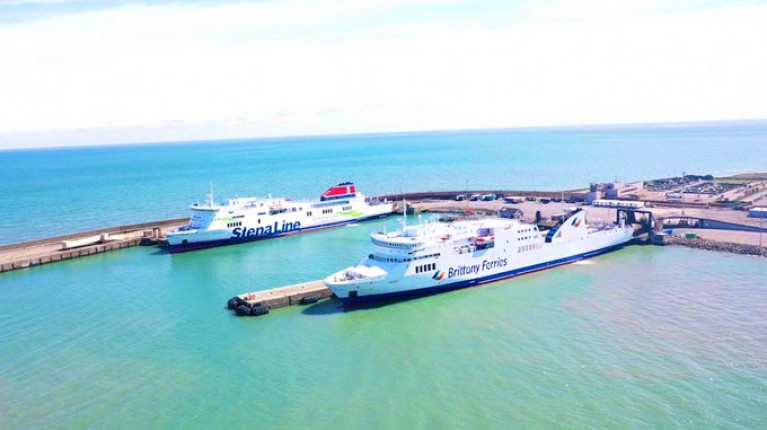Displaying items by tag: Handle Trade of
The ferryport of Rosslare Europort will undergo a €30m transformation over the next five years and is the ideal port to alleviate traffic congestion and lessen pollution in Dublin, according to manager Glenn Carr.
As the New Ross Standard reports, Mr Carr said there are 100 acres of land waiting to be developed within a five kilometre radius of the port, an unrivalled landbank in the country, adding that it makes perfect sense for Dublin Port ships and shipping activity to be moved to Rosslare. Planning permission to develop a new access road and entrance has been submitted, with works due to commence this winter - and combined with major plans by the OPW to develop a customs unit at the port - Rosslare Europort is able to take over 20 per cent of activity from Dublin in the coming years.
Mr Carr said: 'Both outside Dublin Port on the M50 and inside, there is congestion. The current situation is not the norm. The norm prior to Covid saw lorries delayed outside the port and even in the port tunnel. With Brexit approaching we do believe that Rosslare has a very strong role to play as geographically it is the closest port to mainland Europe. Companies can save seven hours, (three and a half hours each way) on the Irish Sea on direct services going to Europe.'
He said the Enniscorthy Bypass has saved hauliers 25 minutes on their journey, adding that the opening of the New Ross Bypass has also strengthened the case for the port. For hauliers travelling to distribution centres along the outer M50 in Dublin, Rosslare is now a lot easier to get to. 'The time you would lose on the ship, you'd gain on the road. The New Ross Bypass provides improved connectivity to Cork, Waterford and Limerick, which are main arteries that a lot of product is moved to. We have seen that with the new Brittany Ferries [Bilbao] service, which moved here from Cork. The biggest factor [behind the move] was that the industry wanted the route in Rosslare because it was easier and quicker to get to so there is already evidence that Rosslare is a real alternative to Dublin.
Presently around 84 per cent of roll-on, roll-off shipping activity occurs in Dublin Port, the remaining 16 per cent falling to Rosslare.
For Carr, there is no other port in Ireland better suited to roll-on, roll-off. because of the better access in and out of the port.
For much more on this ferry development click here.
Afloat adds Brittany Ferries were to have launched a second new route out of Rosslare to Roscoff, but due to Covid-19 the start date has been rescheduled to this month. The inaugural sailing is in a fortnight's time, Monday 15th June.
In the meantime Kerry maintains the year-round Spanish service albeit in a freight-only mode until sailings open to passengers return on Wednesday 17th June.
























































